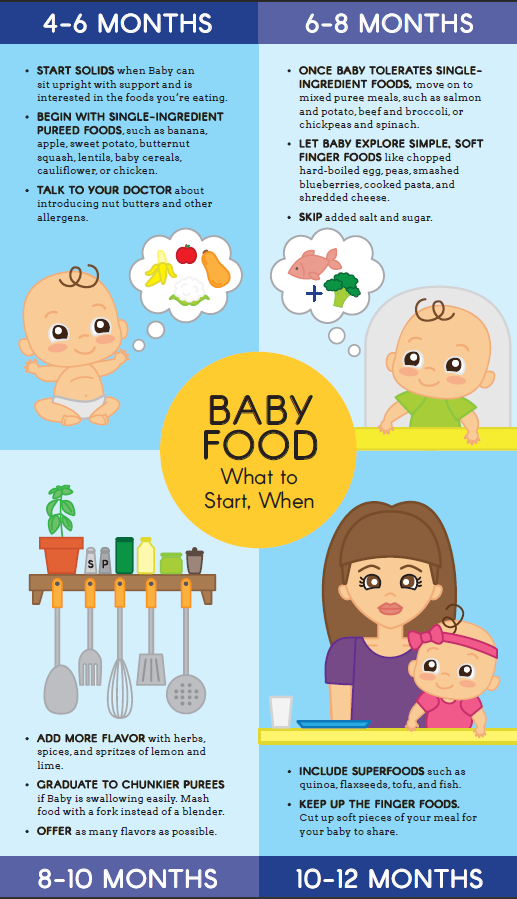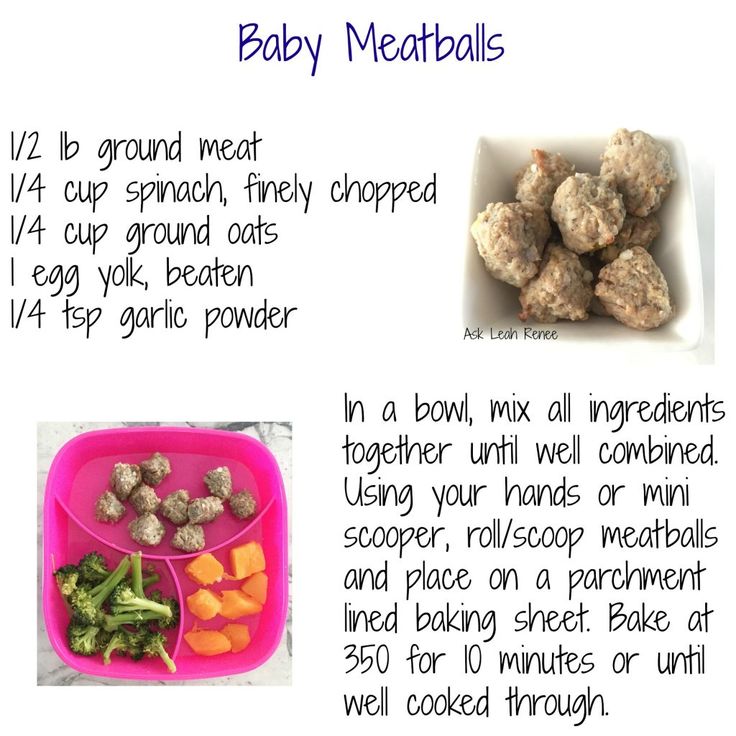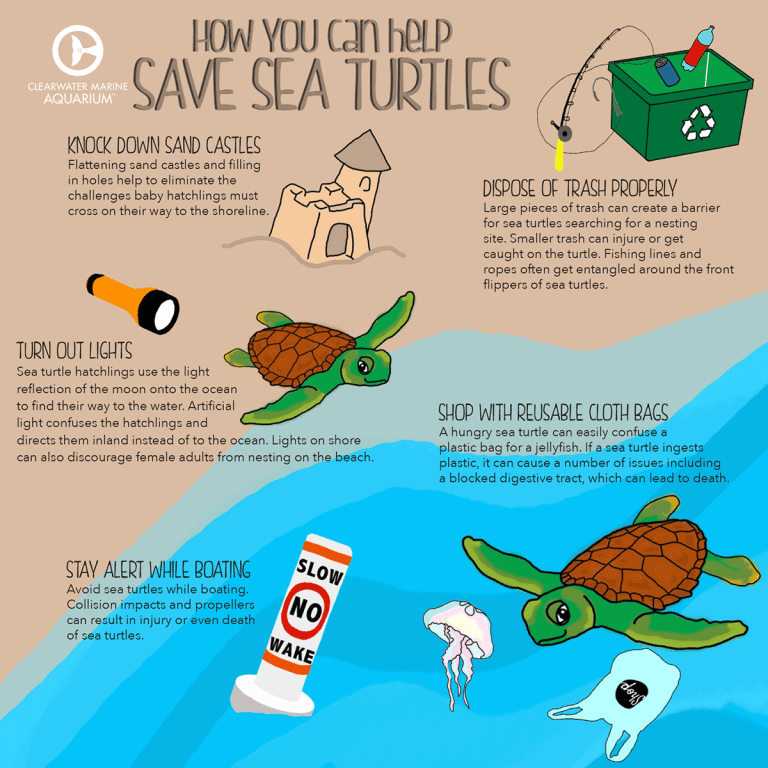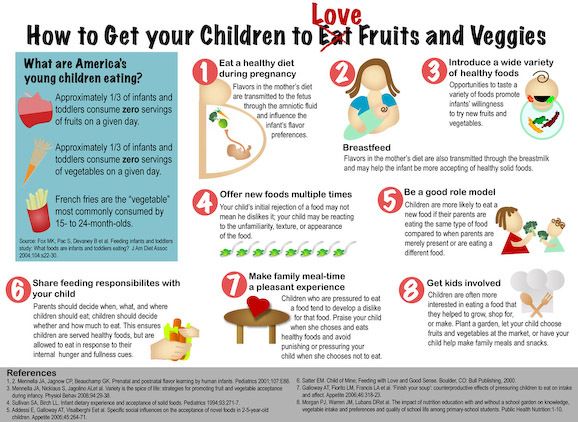How to keep baby awake during bottle feeding
Keeping Baby Awake During Feeding
Read time: 4 minutes
What to know about babies who fall asleep while feedingUnderstand your baby’s sleep and eating patterns
Tips for keeping your baby awake and alert to feed
When sleeping during feeding can signal a problem
It’s normal and common for babies to fall asleep while feeding, especially while nursing. Breast milk (and even more so suckling at the breast) encourages the flow of “feel good” hormones like oxytocin and cholecystokinin, promoting restfulness and feelings of security and safety.1
Newborns have a lot of growth and development happening in those early weeks, and their bodies need a lot of sleep and nutrition to help that happen. Given that they need to eat and sleep so much, sleepiness with feeding is bound to happen. 1,2
Despite well-meaning advice to the contrary, feeding to sleep is not a negative, nor does it create associations that will trap parents into this pattern forever. The associations between feeding (especially breastfeeding) and sleep are biologically linked and usually nothing to be concerned about.1
A baby who is well-fed and meeting their weight and development goals will often fall asleep after a good feeding. A good feeding can be recognized as one that includes vigorous suckling and ends with a relaxed, cozy, “milk drunk” look.4
While falling asleep after a feed is usually nothing to worry about, the below signs could indicate that baby is having difficulty with eating and means that you should talk with your baby’s doctor or a lactation consultant.
Signs baby baby may be having difficulty with feeding, resulting in sleepiness:
Fall asleep quickly: before going onto the breast or bottle or after just a few suck/swallows
Have irregular bursts of suckling and swallowing
Still look tense even if they do fall asleep
May have weight gain issues5,6
Should you want to discuss your sleepy baby, our expert dietitians and breastfeeding specialists are also available to chat Mondays – Fridays 8 AM – 6 PM ET and Saturdays - Sundays 8 AM – 2 PM ET. Chat now!
Chat now!
Try undressing baby or changing baby’s diaper.Newborns can be sleepy, so this technique works best with them, especially if they are working through some feeding issues like having just gotten a tongue tie fixed or if baby was born a little early.6,7
Additionally, a warm baby can be a sleepy baby! Keep baby cool, rub baby’s back, or run your finger across their cheek and chin. This can be done for both bottle and breastfeeding babies.8
Do breast compressions if you are nursing at the breastCompressions can be particularly effective for a sleepy baby. This action helps increase the flow of milk, which can be helpful for a baby who is having trouble sustaining a full feeding session.8
When you notice baby not drinking or the drinking/swallowing has slowed down, give your breast a squeeze (but not so strong that it hurts). You should see baby’s suckling start to pick up. Keep squeezing until baby slows down their suckling again.8 You can repeat this as often as you would like.
You should see baby’s suckling start to pick up. Keep squeezing until baby slows down their suckling again.8 You can repeat this as often as you would like.
Babies are primed to eat when they need to, and restriction or a strict schedule can lead to underfeeding, which can cause even more issues with sleepiness.7,10 A fed baby is a stronger and more alert baby.
Note that you may need to wake baby to feed if your newborn is eating less than 8 times per day, is having trouble gaining weight, and/or is sleeping a 4 hour or more stretch more than once per day.7
Read more:Breastfeeding On Demand Vs. On a Schedule
Supplement with more breastmilk or formula if neededIt’s okay to supplement if needed to help keep baby meeting their nutrition needs while feeding concerns are being investigated.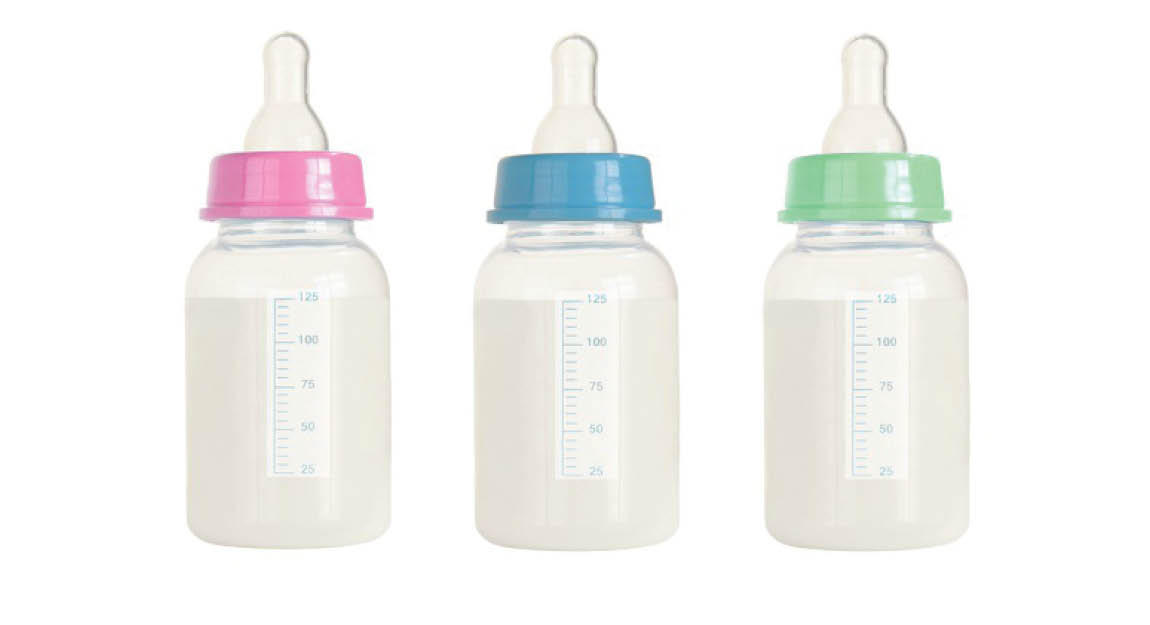 Supplementation can be with expressed breast milk, donor breast milk, or formula if the first two aren’t available.
Supplementation can be with expressed breast milk, donor breast milk, or formula if the first two aren’t available.
Supplementing a small amount prior to nursing at the breast will allow baby to finish at the breast and take their fill.11
Read more:
How Do I Supplement my Breastfed Baby with Formula?
Dealing With a Low Breastmilk Supply
If baby is bottle feeding, try a different nipple size or shapeSome babies (especially those with a tongue tie or other issue) may have trouble getting their mouth around certain nipples and this can cause feeding to be harder than it needs to be. If you change nipple sizes, be careful that the flow is not too fast for baby. You can try feeding baby upright to help them pace themselves.
Read more:
What Is Paced Bottle Feeding?
Choosing the Best Bottles and Nipples for your Baby
If you are breastfeeding, try switching breastsSimilar to compressions, the faster flow of the previously unused breast may help keep baby awake. 12
12
Sometimes babies are not getting enough milk, and therefore become sleepier, because they are not latching well. This is because a shallow or poor latch may prevent baby from transferring an adequate amount of milk.6 Sometimes simply changing breastfeeding positions can help baby latch deeper; occasionally a bit more adjustments are needed.
Contact a lactation consultant for a full assessment if you suspect baby is not latching well.
Read more:
6 Breastfeeding Positions for You and Your Baby
Top Breastfeeding Latching Tips
Ask for helpIf baby is having trouble staying awake even with the above techniques, feedings take an excessively long time (40 minutes or longer consistently), baby isn’t gaining weight appropriately, or is difficult to wake, call your baby’s doctor ASAP.7,12
Let's Chat!We know parenting often means sleepless nights, stressful days, and countless questions and confusion, and we want to support you in your feeding journey and beyond.
Our Happy Baby Experts are a team of lactation consultants and registered dietitian nutritionists certified in infant and maternal nutrition – and they’re all moms, too! They’re here to offer personalized support on our free, one-on-one, live chat platform Mon-Fri 8am-6pm (ET), and Sat-Sun 8am-2pm (ET). No appointment needed, no email or sign-up required. Chat Now!
Read more about the experts that help write our content!
For more on this topic, check out the following articles:Breastfeeding: How to Support a Good Milk Supply
How To Deal with Nursing Strikes while Breastfeeding
Feeding Tips for Healthy Weight Gain in Babies and Toddlers
How Much Formula Does My Baby Need?
Sources
Keeping a Newborn Awake During Feedings
How to feed a sleepy newborn. Tips to keep baby awake while eating so your baby can get a full feeding for breastfeeding and bottle feeding.
Nursing a newborn is not easy.
They tend to consistently fall asleep after they get a bit of food in their tummies.
The day will come when this sleepy newborn baby will stay awake and eat, but what do you do until then?
You are trying to start a baby schedule from the beginning and it is taking what little energy you have to keep the baby up just to eat, much less play afterward!
Post Contents
- The Reasons You Want to Keep Baby Awake for Feedings
- How Long Until Baby Will Just Stay Awake
- How To Keep Baby Awake for Feedings
- Conclusion
- Related Posts
- Reader Advice
- Reader Questions
The Reasons You Want to Keep Baby Awake for Feedings
When you make sure your baby stays awake for a feeding, you are helping your baby set up a solid routine and schedule.
If baby is awake for the feeding, then baby is not napping through the feeding. Power naps help you not be so sleepy, so if your newborn is power napping through every feeding, he will not be so sleepy when nap time arrives.
It also helps you make sure your baby gets a full feeding. Baby stays awake and eats until she is full.
Baby stays awake and eats until she is full.
I didn’t do Babywise with Brayden, my oldest, until he was 9 weeks old. When Kaitlyn, my second, was born, I was a bit of a novice for the first couple of months.
She was a sleepy baby. She was always hard to wake up to eat. As soon as she started to eat, she would doze.
At one point while I was working through troubleshooting the reason she was not falling asleep well before naps, I had the thought come to me that I needed to make sure she didn’t fall asleep while nursing.
>>>Read: Feeding a Newborn: How Long is a Feed?
This was no easy task! But I put my effort into it, and it worked!
She started falling asleep for naps without crying again.
Over the years, when helping moms figure napping out, I am often urged to mention this falling asleep while eating thing. I get great feedback from people after they try it. I finally realized I needed a post stressing the importance and significance of this.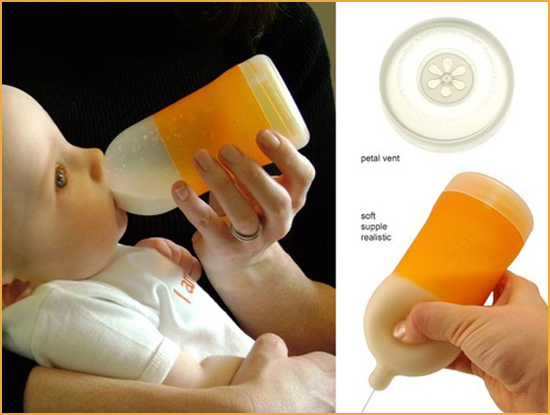
Remember if baby falls asleep and takes a quick catnap, baby will not be tired enough when nap time rolls around.
You will also have a hard time figuring out optimal waketime because of the power nap.
You will know a newborn should go back to bed after 45-60 minutes, but your baby’s body might not be ready because of that nap.
>>>Read: Optimal Waketime Lengths
You also need to remember that if baby is napping throughout the feeding, baby doesn’t eat well enough to last until the next feeding.
You also might not have enough stimulation time for baby because it will take baby longer to eat due to the napping.
Another reason for keeping baby awake if you are breastfeeding is to ensure you are getting enough stimulation to keep your milk supply up.
So please, work to keep baby awake while you are feeding!
This will probably mean zero distractions for you at first.
No books. No TV. No entertaining other children. No scrolling your phone.
No scrolling your phone.
This is your life! Don’t worry, it will get better soon. Try to enjoy it for what it is. It really isn’t long before your baby will be able to stay awake without your efforts.
So to review:
- Keeping baby awake helps with naps
- Keeping baby awake helps you get wake time lenght correct
- Keeping baby awake helps ensure baby gets a full feeding
- Keeping baby awake helps make sure baby gets enough stimulation during wake time
- Keeping baby awake helps you make sure baby gets a full feeding
How Long Until Baby Will Just Stay Awake
With Kaitlyn, I worked on one wake time a day each week.
She always fell asleep during feedings, and so I just worked on getting her to stay awake for one wake time each week.
For example, for the first week I just really focused on keeping her awake after the first feeding. The remainder I let her do what she did. If she fell asleep, I put her in her bed.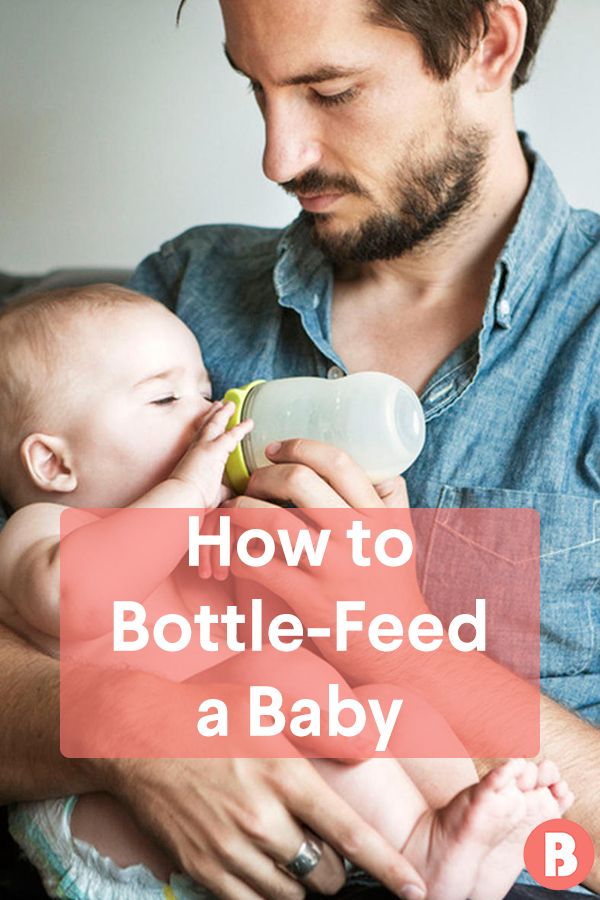
The last wake time I worked on was after her 1:00 pm feeding. It was a hard one for her! I know that at 4 weeks she was still zonking after that and stayed asleep until I woke her for her next feeding.
I can’t remember her exact age when she started being able to stay awake for that one, but it was definitely older than 4 weeks.
With my second and third babies, I worked to keep my babies awake for feedings all day, but it still takes a few weeks at least before your baby will just stay awake and eat.
In The Baby Whisperer Solves All Your Problems, Hogg states that baby is less likely to fall asleep during feeds after 6 weeks of age (page 30).
That doesn’t mean it never happens; some do and some don’t (some really never did). But it might give you something to look forward to. With Katilyn, I remember a significant improvement after 4 weeks, then steady progress from there.
How To Keep Baby Awake for Feedings
A sleepy baby is really an exhausting thing for a mom who is trying to get a full feeding in her baby. It requires all of your focus and energy, so again, put down your distractions and focus on your baby.
It requires all of your focus and energy, so again, put down your distractions and focus on your baby.
- Use your thumb to rub a circular motion on the palm of his hand
- Rub his back or underarm
- Rub her shoulders
- “Walk” your fingers up and down his spine.
- Apply a cool rag or cold wet wipe to his feet, forehead, or neck
- Sit her up
- Talk, sing, etc.
- Change her diaper between sides or halfway through the bottle
- Gently tickle feet
- Switch breasts or positioning of your baby
- Burp the baby
If none of these work, leave baby for 30 minutes and try again. You really don’t want to work for more than ten minutes to get your baby to wake up–it will leave you super frustrated. Read more about this here: Sleepy Newborns: Work to Feed for 10 Minutes
Conclusion
Even after all that effort, there are no guarantees that baby will stay awake.
It is just a difficult time. It will take some time, but the more you work on keeping her awake for a full feeding, the better she will get at it.
It is worth the effort. You want a full feeding and you want to get her to stay awake during waketimes in order to sleep better at night. Keep at it! Before too long you will be able to relax while you feed your baby.
Related Posts
- Sleepy Newborns: Work to Feed for 10 Minutes
- Optimal Waketime Lengths
- Feeding a Newborn: How Long is a Feed?
- Rachel Stellaaa said…
What I found to work the best with my sleepy baby (tickling him etc was not effective) was to not keep him too warm and wrapped up when I was feeding him, and when he started to fall asleep, put him beside me (or the floor, whatever you like) unwrapped and he would probably kick around and fuss for a second because he wanted to be nice and snug again, which would then wake him up enough to eat again. Sometimes I would have to do this several times throughout a feed.
May 23, 2008 9:33 PM
Plowmanators said…
Oh yes, Rachel. I have found that to be true also. Thanks for pointing that out!
I have found that to be true also. Thanks for pointing that out!
May 26, 2008 10:03 AM - bradysmom said…
My baby was a very sleepy newborn as well. I always found the wet wash cloth did the trick. I would always have to feed him in only his diaper as well. Usually, between being naked and the wet washcloth, I could keep him awake! August 19, 2008 5:58 AM
Plowmanators said…
Thanks Bradysmom–ugh, that was so much work! I don’t miss that 🙂August 19, 2008 9:11 PM - Kelly Grant said…
My baby is 4 months old and I have done BW since she was born. She was the sleepiest baby I have ever seen. It was VERY frustrating to nurse at first because she would ALWAYS try to fall asleep. Throughout the feeding we would take her clothes off, use a cool cloth, move her top arm around and keep talking to her to keep her awake for feedings. It used to take 45 minutes to feed her EVERY FEEDING! This kept on until about 3 months…and although it was frustrating and time consuming its WORTH IT. Now she nurses in 15 min and has stayed in the 90th to 95th percentile in height and weight since she was born. Not to mention she naps well and has STTN since she was 3 weeks old! Its worth the effort to keep them awake for feedings!
Now she nurses in 15 min and has stayed in the 90th to 95th percentile in height and weight since she was born. Not to mention she naps well and has STTN since she was 3 weeks old! Its worth the effort to keep them awake for feedings! - D&H said…
Not only does it help with naps and getting a full feeding, it is important for baby to stay awake so they eat enough to be healthy!My baby was very sleepy as a newborn. In the hospital it took him a long time to latch on and then he would fall asleep before taking one suck! Partially because he was so sleepy and it took us a week to learn how to nurse, I had to pump and supplement for a while as well as work very hard to keep him awake for the first 2 months or so. On advice from my lactation consultant, I undressed him down to the diaper before feeding, changed his diaper between sides to wake him up again (worked better than undressing him) and got him dressed, and then nursed on the second side. I was constantly rubbing his head, hands, toes, moving his arms and legs, and sometimes using a wet cloth to keep him awake.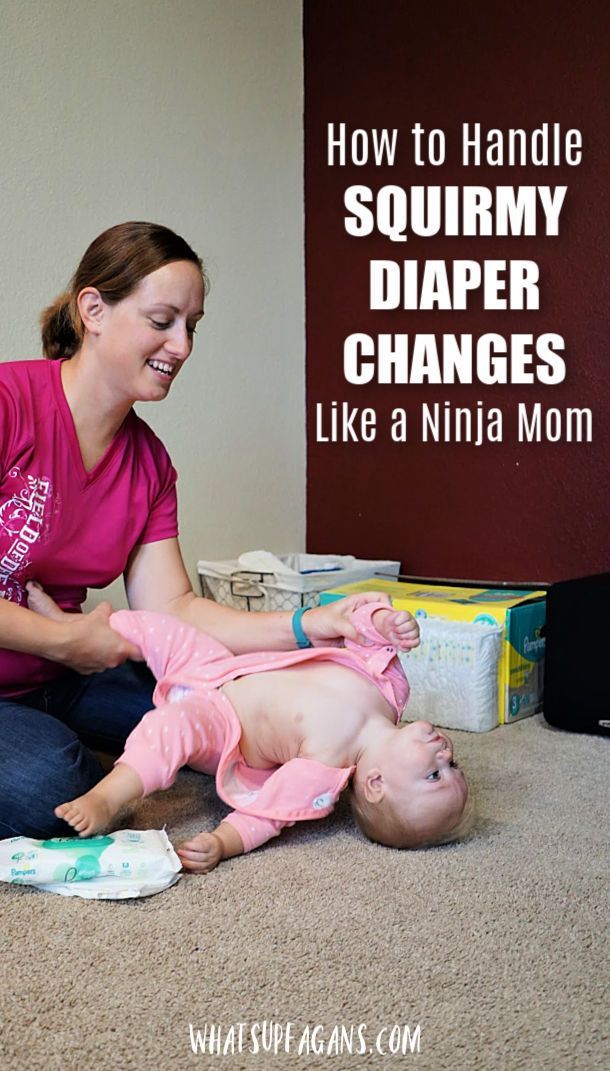 However, now he has nursed fine without any supplement for 4 months and is able to stay awake through feedings. He is gaining weight well. His naps and bedtime also go better when he doesn’t fall asleep nursing.
However, now he has nursed fine without any supplement for 4 months and is able to stay awake through feedings. He is gaining weight well. His naps and bedtime also go better when he doesn’t fall asleep nursing.
- Catherine said…
I am having a random problem at night! My son eats and falls asleep lying on me. Then when I move him to his crib, he stays asleep while I move him, although he jostles a little, bit then when he hits the crib he startles awake (I can see him and hear him startle) and can’t get back to sleep. The other night I let him CIO but he went 1.5 hrs intermittently crying and just couldn’t do it. Finally I just had to put him in the swing bc he was so worked up. This has been happening for the last few weeks- really since he came out of the extremely sleepy, can’t wake for anything, newborn phase. It’s really frustrating though and really messes up our nights! Any thoughts anyone?
March 4, 2008 10:42 AM
Plowmanators said…
Kaitlyn did that a few times.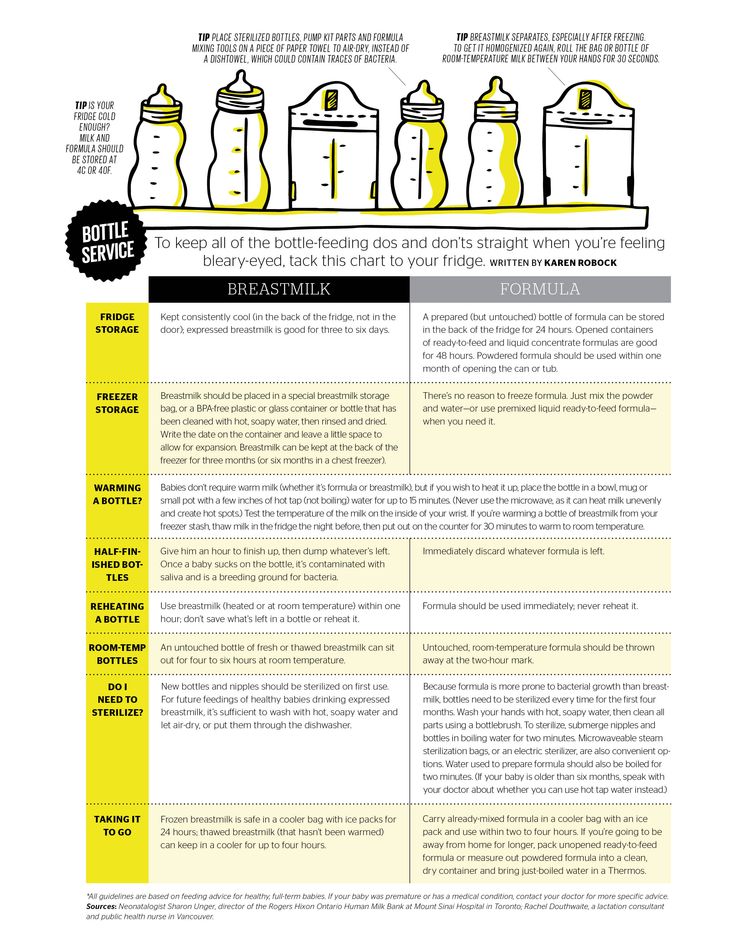 Be sure he is getting a full feeding in–if he falls asleep before he is done eating, wake him to finish. That way you know he is full. As he learns to soothe himself, he will get better about it. Hang in there!
Be sure he is getting a full feeding in–if he falls asleep before he is done eating, wake him to finish. That way you know he is full. As he learns to soothe himself, he will get better about it. Hang in there!
March 4, 2008 1:42 PM
Catherine said…
Thanks Valerie. What did you do when Kaitlyn did that?
March 5, 2008 10:51 AM
Plowmanators said…
It was never consistent for her, I think one time we tried rocking her to no avail so I just fed her. Another time we did the swing, that worked. Then we just moved her up to her bed after she fell asleep and she somehow stayed asleep. It is all a normal part of the learning process. Stay consistent and hang in there! Things will start to improve and you will have less to worry about at a a time 🙂
March 5, 2008 10:51 AM
- jencwu said…
One thing I have struggled with is how do I know when my baby is done eating? He is 4 weeks old and still quite sleepy when he’s eating, so I will try to make him go 10-15 mins on each side, sometimes longer if he is really sleepy. Usually after that amount of time I am really fighting to keep him awake and I usually just figure he’s had enough so I break his suction and take him off. Is that the right thing to do or should I wait for him to do that on his own? If I wait it might take forever since he is always going in and out of sleep. Also, my husband feeds him 1 bottle of breastmilk for his DF and he usually eats about 5 ounces, which from what I’ve read is a lot more than typical at this age. He is growing a lot faster than typical too. So I know he has a big need for food, but I just really don’t want to spend my entire day nursing a sleepy baby.
Usually after that amount of time I am really fighting to keep him awake and I usually just figure he’s had enough so I break his suction and take him off. Is that the right thing to do or should I wait for him to do that on his own? If I wait it might take forever since he is always going in and out of sleep. Also, my husband feeds him 1 bottle of breastmilk for his DF and he usually eats about 5 ounces, which from what I’ve read is a lot more than typical at this age. He is growing a lot faster than typical too. So I know he has a big need for food, but I just really don’t want to spend my entire day nursing a sleepy baby.
August 22, 2008 1:10 PM
Plowmanators said…
jencwu, This is a hard one, especially for the first time mom. My son took an hour to eat (at least) at that age. Looking back, a lot of that was me not really knowing what was going on. Just work to keep him awake (I know it is draining, but it should improve soon). At 3 months, my son went down to 30 minutes and was really easy to see when he was done eating. It will get easier with time and experience.
It will get easier with time and experience.
August 28, 2008 7:48 AM - jencwu said…
I looked around and wasn’t sure where else to put this question, so I’m including it here. I know BW says not to nurse your baby to sleep, but what about at nighttime feedings? What I have been doing is when he wakes up at night, I feed him on one side, change his diaper, then feed him on the other side. I try to keep him awake to get a full feeding but then after a certain amount of time he is just so sleepy he won’t wake up for anything. I really press the issue if I feel he hasn’t eaten enough, but usually he gets that sleepy after I feel he’s eaten enough. So I just burp him (he usually even sleeps through that at those times!) and put him down. Do you think this is okay or could it be messing up the daytime routine (as in maybe it is making him feel like he needs to feed in order to go to sleep for naps?)? If I shouldn’t be doing this, what would you suggest for nighttime feedings?
August 22, 2008 1:19 PM
Krystal said…
Jen,In BW it says that during the nightime feeding you are suppossed to feed him and then immedietly put him back down. I don’t think there is any problem w/ nursing and then putting him back to bed. This is what I did w/ both of my kids, and it didn’t cause a problem w/ naps during the day. Just be sure and keep the eat/awake/sleep cycle (makeing sure you don’t nurse to sleep)during the day and you are set. 🙂
I don’t think there is any problem w/ nursing and then putting him back to bed. This is what I did w/ both of my kids, and it didn’t cause a problem w/ naps during the day. Just be sure and keep the eat/awake/sleep cycle (makeing sure you don’t nurse to sleep)during the day and you are set. 🙂
August 24, 2008 9:55 PM
Plowmanators said…
jencwu, I think that is fine for that feeding. Just do your best to be sure he gets a full feeding so he can get some good sleep.
August 28, 2008 7:50 AM
Plowmanators said…
Thanks Krystal–good tips!
August 28, 2008 7:50 AM - juls1974 said…
I can totally relate to Jen. My 5 week-old does the same thing when I’m nursing, whether it’s day or night. He falls asleep within 10 minutes of nursing and then wakes up briefly to suck every minute or so (especially if I try to take away the breast). I usually change his diaper and that will wake him up for a few more minutes of nursing, but then it’s back to sleep again.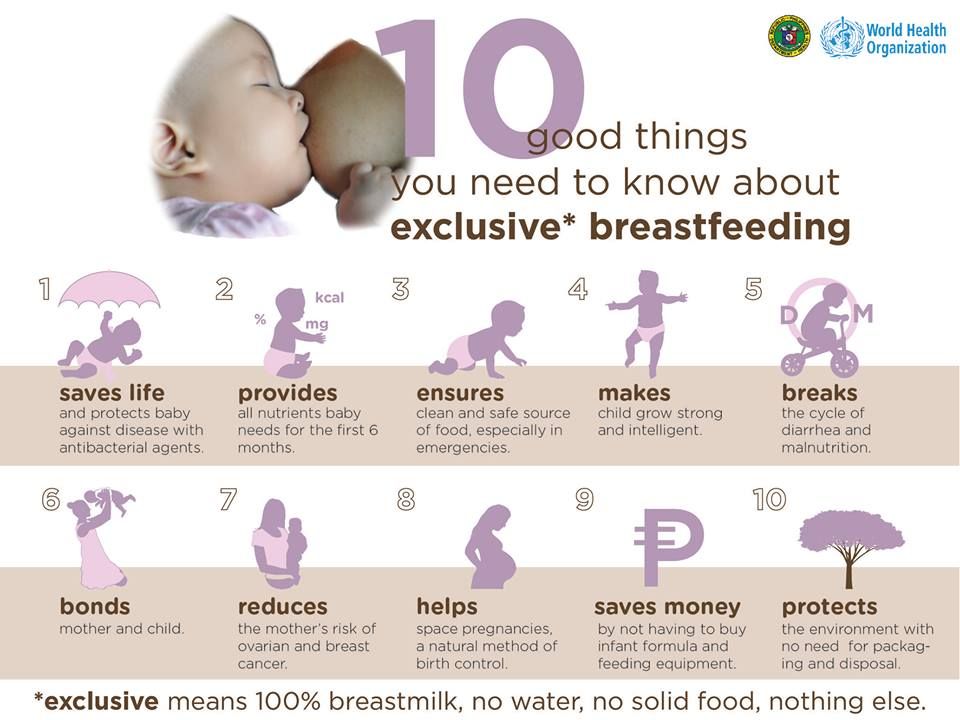 I realize now after reading many posts/comments that I need to work a little harder to get in that full feeding. My question now is what can I do to keep him awake during “waketime?”Many times I end up burping him after nursing and then putting him to bed right away because there’s NOTHING I can do to wake him up. If he does wake up a little he’s so drowsy that I can’t tell when I should put him down to bed (overabundance of sleepy cues). Does that make sense? So, he sleeps so much during the day that he sleeps poorly during the night which makes him extra sleepy the next day, and the viscious cycle continues… Any suggestions?
I realize now after reading many posts/comments that I need to work a little harder to get in that full feeding. My question now is what can I do to keep him awake during “waketime?”Many times I end up burping him after nursing and then putting him to bed right away because there’s NOTHING I can do to wake him up. If he does wake up a little he’s so drowsy that I can’t tell when I should put him down to bed (overabundance of sleepy cues). Does that make sense? So, he sleeps so much during the day that he sleeps poorly during the night which makes him extra sleepy the next day, and the viscious cycle continues… Any suggestions?
September 11, 2008 2:12 PM
Plowmanators said…
The fact that he isn’t sleeping well at night tells you that he needs more waketime in the day. I would think through his day and figure out when he is most awake. For one week, focus on keeping him awake for that waketime. At the same time, figure out his optimal waketime length. At that age, my guess would be 30-45 minutes, while some could do 60 minutes. After a week, choose another waketime so you have two waketimes in the day that he is awake, and so forth. If he responds well, you can move faster than one week at a time.To keep him awake, sit him up, talk to him, keep things interesting (but remember for a newborn it doesn’t take much to be interesting).
After a week, choose another waketime so you have two waketimes in the day that he is awake, and so forth. If he responds well, you can move faster than one week at a time.To keep him awake, sit him up, talk to him, keep things interesting (but remember for a newborn it doesn’t take much to be interesting).
September 17, 2008 8:11 AM - Gwyn said…
After reading several of your posts, I’m starting to wonder if my 7 week old is having problems falling asleep at naptime b/c she is taking small cat naps during feeding time. I’m always trying to stimulate her while she is eating, and she continues to suck (her eyes are almost always closed), but it sounds like she could be sleeping? i tried this morning and it is so hard to keep her awake and swallowing – it takes me about an hour to feed her! it’s frustrating because at the end of the feeding once she is off the breast and not as snuggly, she is wide awake! i wouldn’t call her a sleepy newborn, just a sleepy eater. what do i do?! the frustration is making me want to exclusively bottle feed – because sometimes we do bottle feed and she stays awake for that generally.
what do i do?! the frustration is making me want to exclusively bottle feed – because sometimes we do bottle feed and she stays awake for that generally.
Plowmanators said…
Gwyn, if she is sleeping during feedings, that will interfere with naps. But hang in there. It will get better if you keep working on it. - Kelly said…
Hi! I’m a new mommy and doing my best to follow Babywise without stressing myself out. I’m a teacher which means I tend to be a very strict schedule follower. The flexibility part is hard for me. Anyway, my baby is 7 weeks old and from the start we had some nursing issues. She is a very sleepy nurser. She is improving, but it takes 45 min to an hour for her to nurse. I really have to work at keeping her awake, but most often her eyes are closed. I don’t take her off the breast because I can see she is still sucking and swallowing. When she stops for a prolonged period, I do take her off, but she fusses and mouths to be put back on. I put her back on and we continue. Sometimes I even top her off with a 1 oz bottle of expressed milk just to make sure she is really full! This really cuts into her waketime. I have been keeping her up for about 1 hour 15 min, but I’m thinking this may be too long. My concern is that she’s not really getting much waketime since she is nursing for so much of it. Another issue is her napping. She is the queen of the 45 minute nap, which I know is affecting her ability to nurse effectively. I thought it might be the 45 min intruder and sometimes it seems that she is hungry and will take a full meal, but that’s certainly not always the case. I was reading on the blog and came across a post that mentioned that if a baby sleeps during nursing, they aren’t likely to take a good nap. Do you think that’s the problem here? I really don’t think I can get her to nurse any faster. Today I’m pumping and feeding her a bottle to speed up her feeding time to see if it’s the long nursing sessions that are the problem. I really hate to give up nursing.
Sometimes I even top her off with a 1 oz bottle of expressed milk just to make sure she is really full! This really cuts into her waketime. I have been keeping her up for about 1 hour 15 min, but I’m thinking this may be too long. My concern is that she’s not really getting much waketime since she is nursing for so much of it. Another issue is her napping. She is the queen of the 45 minute nap, which I know is affecting her ability to nurse effectively. I thought it might be the 45 min intruder and sometimes it seems that she is hungry and will take a full meal, but that’s certainly not always the case. I was reading on the blog and came across a post that mentioned that if a baby sleeps during nursing, they aren’t likely to take a good nap. Do you think that’s the problem here? I really don’t think I can get her to nurse any faster. Today I’m pumping and feeding her a bottle to speed up her feeding time to see if it’s the long nursing sessions that are the problem. I really hate to give up nursing. I feel like we get stuck in the horrible cycle of not sleeping well because of not feeding well and not feeding well because of not sleeping well! Of course some days are better than others. Any advice would be so appreciated!!
I feel like we get stuck in the horrible cycle of not sleeping well because of not feeding well and not feeding well because of not sleeping well! Of course some days are better than others. Any advice would be so appreciated!!
Plowmanators said…
Kelly,I would strongly guess that she is not really eating the whole time you think she is. It sounds like how my oldest was, and as I have looked back on things, I think he was taking little catnaps along the nursing way. I think that is a good chance at what is affecting your naps. You don’t have to give up nursing. You can just work to make sure she is awake. Talk to her, try to make sure you see her eyes every so often. When you take her off, if she looks for the breast without opening her eyes, I think there is a good chance she is power napping. Good luck!
This post originally appeared in December 2007. Information in this post also published August 2008 and August 2010.
Artificial feeding of babies | Bebbo
Submitted by Ilya Danshyn on Wed, 12/08/2021 - 18:40
Sometimes the baby cannot breastfeed, so you have to express milk and bottle feed the baby.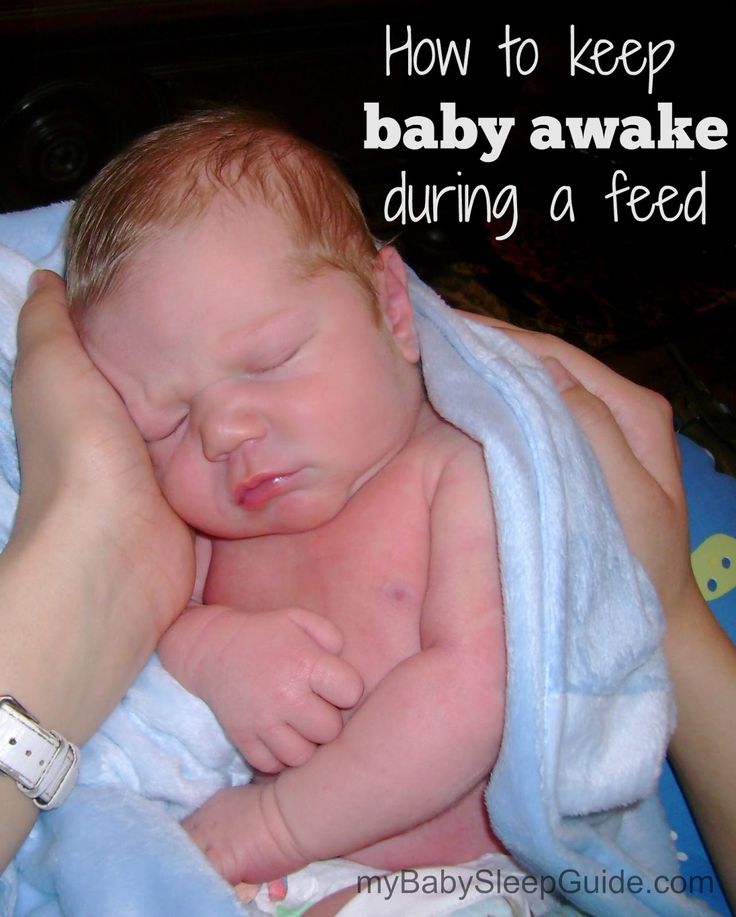 Some babies are formula fed because for some reason breastfeeding is not possible, or lactation has stopped prematurely, or you have chosen to formula feed your baby.
Some babies are formula fed because for some reason breastfeeding is not possible, or lactation has stopped prematurely, or you have chosen to formula feed your baby.
- Make sure that the rate of milk flow from the bottle through the nipple is appropriate for the baby. nine0008
- To check this, turn the filled bottle upside down.
- Milk should drip quickly, not squirt. If you have to shake the bottle hard to make the milk drip, it means that the nipple is not providing the normal intensity of feeding.
- The baby can fall asleep even before he has eaten everything from the bottle.
- It is normal for a small amount of milk to leak from the corners of the mouth; it will stop when the child gets older. nine0008
- If you can't find the perfect nipple, choose the one that produces the most milk; it's okay if you have to go through how many nipples before you find one that's right for you and your baby.
How to bottle feed your baby
- Sit back and hold your baby in your arms, gently but firmly.
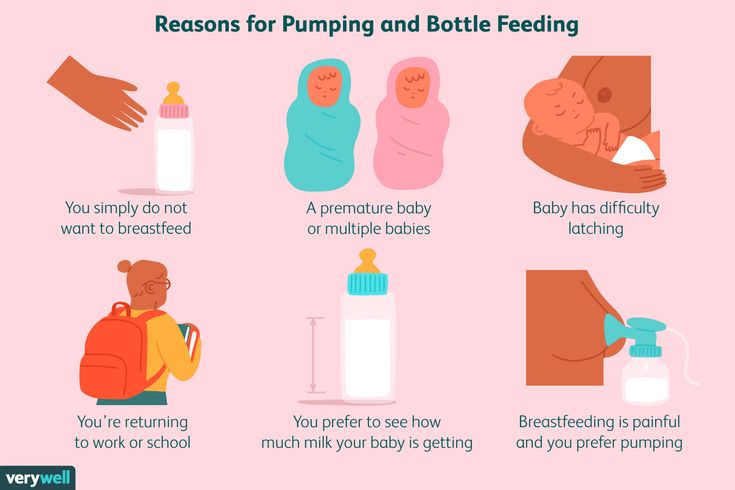 It is better for the baby to be in a more upright position, similar to the position when breastfeeding. nine0008
It is better for the baby to be in a more upright position, similar to the position when breastfeeding. nine0008 - Place the pacifier between the baby's lips; he will open his mouth and start sucking.
- Hold the bottle at an angle so that the nipple and mouth of the bottle are constantly filled with milk; this will prevent the child from swallowing air.
- When the baby stops actively sucking or has eaten half the milk from the bottle, carefully remove the bottle and check if he wants to burp; after that, you can continue feeding.
- Change the position of the baby during feeding or at least at each feeding; this allows even stimulation of the baby's sensations on both sides of the body and prevents positional deformation of the head. nine0008
How much milk does a baby need?
- The number of meals and the amount of milk is determined by the baby! Different babies require different amounts of breast milk or formula.
 Feeding time is not always evenly distributed over the time of day, sometimes children eat more during the day, followed by a long night break. nine0008
Feeding time is not always evenly distributed over the time of day, sometimes children eat more during the day, followed by a long night break. nine0008 - If you are formula feeding, check the chart on the box. Of course, the recommended serving size for your age will only serve as a guideline and may not necessarily be appropriate for your child.
- When a baby begins to receive complementary foods, as the amount of solid food increases, the baby's need for milk decreases.
- The amount of formula your baby eats will decrease when he switches from bottle to cup. nine0008
- By the age of 12 months, when a baby can switch to cow's milk, he usually receives 500-600 ml of breast milk or formula per day.
Some babies never eat the recommended amount of milk for their age and height. For some, this "recommended" volume is not enough. At least six wet diapers during the day, constant but not excessive weight gain, a healthy and active child - all this indicates that everything is in order.
If you are concerned that your baby is not getting enough milk or formula, contact your doctor. nine0003
Responsive feeding from the bottle in accordance with the needs of the child
- Feed the baby when he shows that he is hungry and not on the schedule, follow his signals.
- Do not feed the baby if he is not hungry, just because the formula is already prepared - this can lead to overfeeding the baby.
- When a baby is bottle fed, there is no difference between foremilk and hindmilk that affects the feeling of fullness in a breastfed baby. nine0008
- The child is often held so that the milk simply flows into the mouth rather than actively suckling; in this case, he eats too much milk too quickly.
- During feeding, watch the baby for signs of satiety - he turns away from the bottle, sucks lazily - and stop feeding in time.
- Hold the baby close to you during feeding, hug and talk to him; it stimulates growth and development and also strengthens the bond between you and your child.
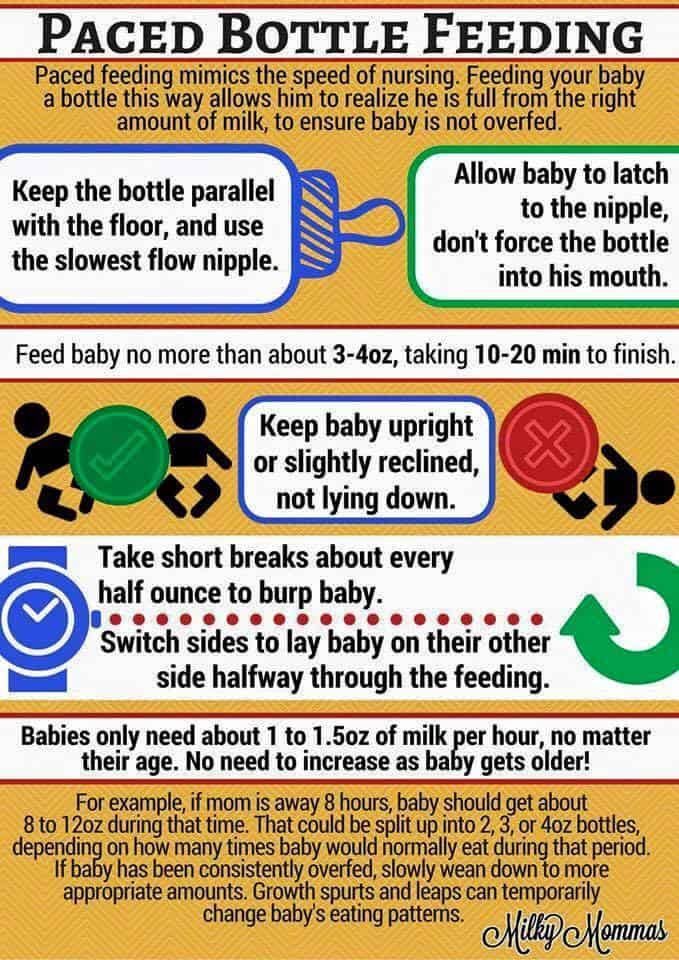 nine0008
nine0008 - The baby did not eat everything from the bottle and fell asleep while eating.
- Don't worry if the child hasn't eaten everything; he knows how much formula or breast milk he needs.
- If the child falls asleep while eating, put him on your shoulder, stroke or pat him on the back and legs; Changing diapers is also an effective way to wake up a baby.
- Wait until the baby is awake before giving him any leftover milk. nine0008
Always empty the remaining milk from the bottle if more than an hour has passed!
Night feeding
- Every baby is different. Some wean from night feeding at four months, and some at two years. From the 6th month of life, healthy children no longer need night feeding. Now it's just a habit that gets harder to change the older the child gets.
- If a baby is bottle fed, this is the last age to stop eating at night! Do not replace milk with juices or other sweetened drinks to protect your child's teeth from cavities.
 nine0008
nine0008 - If your baby drinks 60 ml or less of milk during the night, you can simply stop feeding at night and calm the baby as you usually do, and then put him back in the crib to fall asleep on his own.
- If your baby eats more than 60 ml every night, gradually reduce the amount of milk over 5-7 nights and lull the baby as you normally do.
Risks of bottle feeding in bed
- If your child gets used to falling asleep with a bottle in bed, it will be more difficult for him to learn to calm down or fall asleep on his own.
- If a child falls asleep with a bottle in his mouth, there is a risk of choking on milk and suffocation. Babies are not as light sleepers as older children and adults, and do not wake up if something prevents them from breathing.
- A mixture left in the mouth during sleep leads to dental caries. nine0021
- When a child drinks from a bottle lying down, the risk of ear inflammation increases.

Australian Article
On
Cover Image
Image
© UNICEF/UN0158032/Voronin
KeyWords
Breast Feed
Category
Power
Child Age
1st month
2nd month
3-4 months
003
The most important thing is to choose the right position when feeding
When bottle feeding, avoid lying down as the milk flows out of the bottle under the force of gravity (at a constant speed controlled by alternating pressure on the nipple).
An infant may choke on milk if fed in a horizontal position. Therefore, it is very important to choose the right - more upright - position for feeding (the baby's head should always be slightly higher than the rest of the body). nine0003
Your baby's head should be in the crook of your arm, in line with his spine. The bottle feeding position should resemble the natural feeding position - especially when you feed him with two different feeding methods.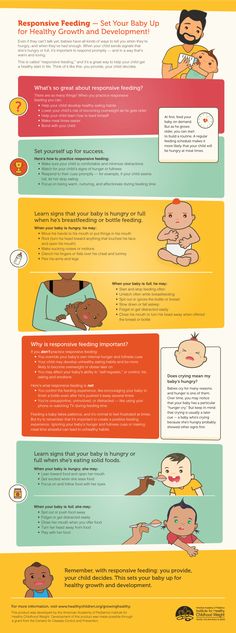
Remember:
- Never leave a baby alone with a bottle as they may choke
- Never let a baby sleep with a bottle in his mouth
How to give your baby a bottle
Place the bottle in the child's mouth so that it forms a right angle with his face. Your baby should not encircle the entire nipple with his lips, but only its oblong part, while the lips should rest against the rounded part. The oblong part should always be full of milk. Otherwise, the baby will swallow a lot of air during feeding, which can cause colic. Air bubbles in the bottle mean your baby is suckling properly.
Emotional connection
Little children need parental love and affection. Your closeness helps him feel safe. Therefore, it is very important to talk affectionately with the baby as often as possible, hug and stroke him. Feeding is the best time to build an emotional relationship with your baby.
This is very easy to do when you are breastfeeding because you are already in physical contact with each other.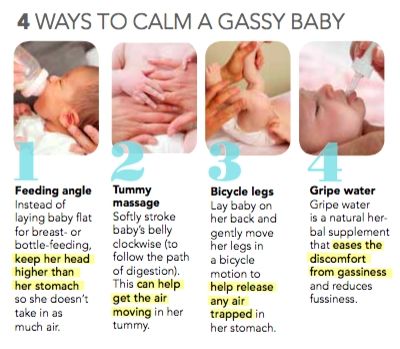 However, bottle feeding also allows you to be closer to your baby as he feels the warmth of your body. Bottle feeding also allows other family members - the father, brothers and sisters to get closer to the child, since not only the mother can feed the baby in this way. nine0003
However, bottle feeding also allows you to be closer to your baby as he feels the warmth of your body. Bottle feeding also allows other family members - the father, brothers and sisters to get closer to the child, since not only the mother can feed the baby in this way. nine0003
Calm emotional background
Never feed your baby when you are irritated or tense. Take some time for yourself first, take a deep breath and try to relax. When you have calmed down, sit in a comfortable chair, place a pillow under your arm, place your baby on the pillow, and start feeding while speaking gently to your baby. Your child feels your emotions. If you are tense, he will also feel restless. Also, never feed your baby when he is excited, crying or screaming. When he is in this state, his airways are not protected and food can enter his larynx instead of his esophagus. nine0003
Feeding by the hour
Formula milk is not as easily digested by the baby's stomach as breast milk, so according to generally accepted rules, it should be given every 3 hours.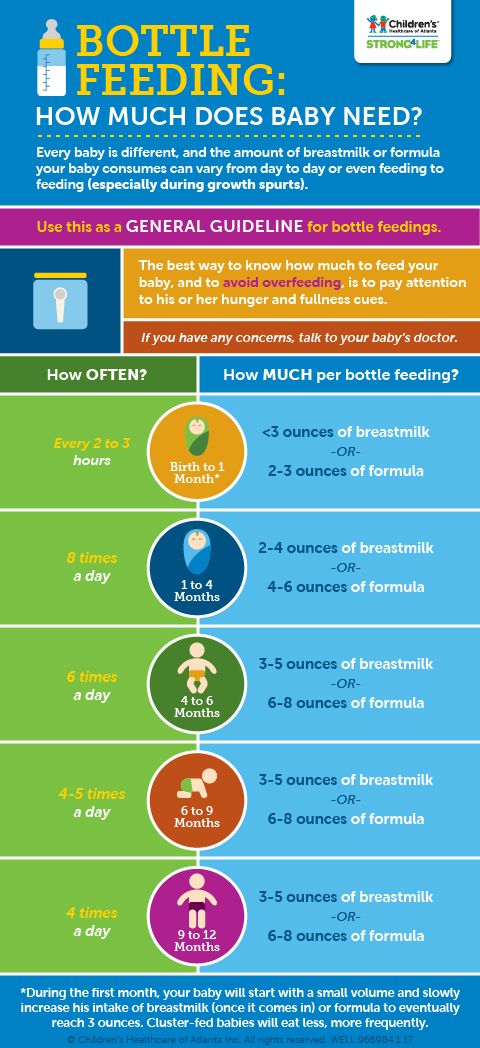
Some pediatricians say it's best to give your baby formula on demand, that is, when the baby is hungry. In their opinion, it is better to feed the child than to wait another hour and keep him in suspense because he wants to eat. However, you still need to control the number of feedings and your baby's weight gain. nine0003
During the first month of life, the baby should eat > 7-8 times a day, 90-100 ml for each feeding, in the second month of life: 6-7 times a day, 100-120 ml for each feeding. During the first six months, the baby should gain approximately 150-200 g per week.
Feeding breaks
When your baby sucks milk from a bottle, he also swallows air. Therefore, he may feel full even before he drinks half the bottle. When feeding a child, breaks should be taken every few minutes to allow the baby to take in air - after such a break, he should ask for food again. During feeding, hold the baby in an upright or semi-recumbent position for a while (sometimes even for several minutes) to give him the opportunity to release air accumulated during feeding from the digestive tract.

